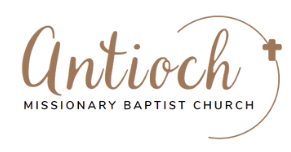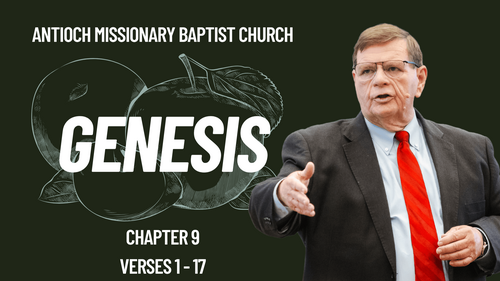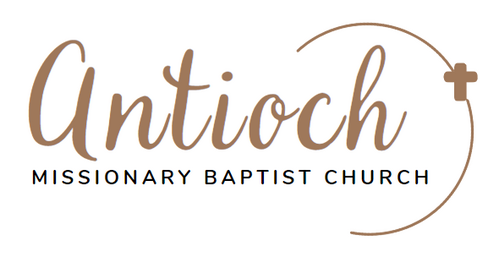Sermon Takeaway 06/29/2025

The Rainbow Promise: God's Covenant of Grace

In the aftermath of the great flood, as Noah and his family stepped out onto a dramatically altered world, God made a profound covenant that would shape the course of human history. This pivotal moment, recorded in Genesis 9:1-17, reveals deep truths about God's character, His relationship with humanity, and the enduring nature of His promises.
As the waters receded and life began anew, God blessed Noah and his sons, echoing the original command given to Adam and Eve: "Be fruitful and multiply and fill the earth." This blessing came with a significant shift in the natural order. The harmonious relationship between humans and animals that existed in Eden was now replaced by one of fear and dominion. God granted humanity permission to eat meat, marking a fundamental change in diet and the human-animal dynamic.
However, this new provision came with a crucial caveat: "But you shall not eat flesh with its life, that is, its blood." This prohibition wasn't merely a dietary restriction; it carried profound spiritual significance. Blood, as the essence of life, held a sacred place in God's economy. It foreshadowed the ultimate sacrifice that would be made by Jesus Christ, whose blood would atone for the sins of humanity.
The sanctity of human life was further emphasized as God instituted the principle of capital punishment: "Whoever sheds the blood of man, by man shall his blood be shed, for God made man in his own image." This decree underscores the unique value of human life as bearers of God's image. It serves as a sobering reminder that every person, from the unborn child to the elderly in declining health, possesses inherent dignity and worth in God's eyes.
Amidst these weighty pronouncements, God made a remarkable promise. He established a covenant not just with Noah and his descendants, but with "every living creature" - a truly universal pact. The heart of this covenant was God's assurance that He would never again destroy the earth with a flood. To seal this promise, God set His rainbow in the sky as an eternal sign.
As the waters receded and life began anew, God blessed Noah and his sons, echoing the original command given to Adam and Eve: "Be fruitful and multiply and fill the earth." This blessing came with a significant shift in the natural order. The harmonious relationship between humans and animals that existed in Eden was now replaced by one of fear and dominion. God granted humanity permission to eat meat, marking a fundamental change in diet and the human-animal dynamic.
However, this new provision came with a crucial caveat: "But you shall not eat flesh with its life, that is, its blood." This prohibition wasn't merely a dietary restriction; it carried profound spiritual significance. Blood, as the essence of life, held a sacred place in God's economy. It foreshadowed the ultimate sacrifice that would be made by Jesus Christ, whose blood would atone for the sins of humanity.
The sanctity of human life was further emphasized as God instituted the principle of capital punishment: "Whoever sheds the blood of man, by man shall his blood be shed, for God made man in his own image." This decree underscores the unique value of human life as bearers of God's image. It serves as a sobering reminder that every person, from the unborn child to the elderly in declining health, possesses inherent dignity and worth in God's eyes.
Amidst these weighty pronouncements, God made a remarkable promise. He established a covenant not just with Noah and his descendants, but with "every living creature" - a truly universal pact. The heart of this covenant was God's assurance that He would never again destroy the earth with a flood. To seal this promise, God set His rainbow in the sky as an eternal sign.
The rainbow serves as a powerful symbol of God's faithfulness and mercy. Each time we see its vibrant arc stretching across the sky, we're reminded of God's commitment to sustain the natural order: "While the earth remains, seedtime and harvest, cold and heat, summer and winter, day and night, shall not cease." This promise provides a foundation of stability in an often chaotic world.
But the rainbow's significance extends far beyond a guarantee against global floods. It stands as a testament to God's character - His willingness to extend grace even in the face of human sin. God acknowledged that "the intention of man's heart is evil from his youth," yet chose to respond with mercy rather than judgment. This divine patience creates the space for repentance and redemption.
The Noahic covenant foreshadows the even greater covenant God would establish through Jesus Christ. Just as the rainbow serves as a visible reminder of God's promise, the cross stands as the ultimate symbol of God's love and commitment to humanity. The blood of Christ, like the prohibited blood of animals in Noah's time, becomes the means of atonement and the basis for a new relationship with God.
As we reflect on this ancient covenant, we're invited to consider our own relationship with God. Do we truly grasp the weight of His promises? Do we live in the assurance of His faithfulness, even when circumstances seem dire? The story of Noah challenges us to exercise faith in God's word, even when it seems improbable or goes against conventional wisdom.
But the rainbow's significance extends far beyond a guarantee against global floods. It stands as a testament to God's character - His willingness to extend grace even in the face of human sin. God acknowledged that "the intention of man's heart is evil from his youth," yet chose to respond with mercy rather than judgment. This divine patience creates the space for repentance and redemption.
The Noahic covenant foreshadows the even greater covenant God would establish through Jesus Christ. Just as the rainbow serves as a visible reminder of God's promise, the cross stands as the ultimate symbol of God's love and commitment to humanity. The blood of Christ, like the prohibited blood of animals in Noah's time, becomes the means of atonement and the basis for a new relationship with God.
As we reflect on this ancient covenant, we're invited to consider our own relationship with God. Do we truly grasp the weight of His promises? Do we live in the assurance of His faithfulness, even when circumstances seem dire? The story of Noah challenges us to exercise faith in God's word, even when it seems improbable or goes against conventional wisdom.
Moreover, this passage calls us to recognize the sacred value of human life. In a world that often measures worth by productivity or societal contribution, we're reminded that every person bears the indelible stamp of God's image. This truth should inform how we treat others, from the most vulnerable to those we might consider enemies.
The covenant with Noah also highlights the tension between God's justice and mercy. While establishing consequences for sin, God simultaneously provides a way forward for humanity. This balance is perfectly embodied in the person of Jesus Christ, who bore the punishment for sin so that we might experience God's mercy.
As we go about our lives, may we be like Noah - people who take God at His word and act in obedience, even when it doesn't make sense to the world around us. May we look to the rainbow not just as a beautiful natural phenomenon, but as a vibrant reminder of God's enduring faithfulness.
In a world that often feels unstable and unpredictable, the covenant with Noah reminds us that we serve a God who keeps His promises. From the rhythms of nature to the gift of salvation, God's steadfast love remains constant. As surely as the rainbow appears after the storm, we can trust in the unwavering promises of God
The covenant with Noah also highlights the tension between God's justice and mercy. While establishing consequences for sin, God simultaneously provides a way forward for humanity. This balance is perfectly embodied in the person of Jesus Christ, who bore the punishment for sin so that we might experience God's mercy.
As we go about our lives, may we be like Noah - people who take God at His word and act in obedience, even when it doesn't make sense to the world around us. May we look to the rainbow not just as a beautiful natural phenomenon, but as a vibrant reminder of God's enduring faithfulness.
In a world that often feels unstable and unpredictable, the covenant with Noah reminds us that we serve a God who keeps His promises. From the rhythms of nature to the gift of salvation, God's steadfast love remains constant. As surely as the rainbow appears after the storm, we can trust in the unwavering promises of God
Let us live in light of this covenant, extending the same grace and mercy to others that God has shown to us. May we be people who value life, who stand for justice, and who point others to the ultimate fulfillment of God's promises found in Jesus Christ. For in Him, we find not just the assurance of earthly stability, but the promise of eternal life and a renewed creation where righteousness dwells.
The next time you see a rainbow stretching across the sky, pause and remember. Remember God's faithfulness throughout history. Remember His patience with humanity's failings. And most of all, remember that the God who set that colorful bow in the clouds is the same God who invites you into a personal, covenant relationship with Him today.
The next time you see a rainbow stretching across the sky, pause and remember. Remember God's faithfulness throughout history. Remember His patience with humanity's failings. And most of all, remember that the God who set that colorful bow in the clouds is the same God who invites you into a personal, covenant relationship with Him today.
Watch the full sermon here:
Recent Takeaways
Archive
2026
2025
March
September
October
November

No Comments